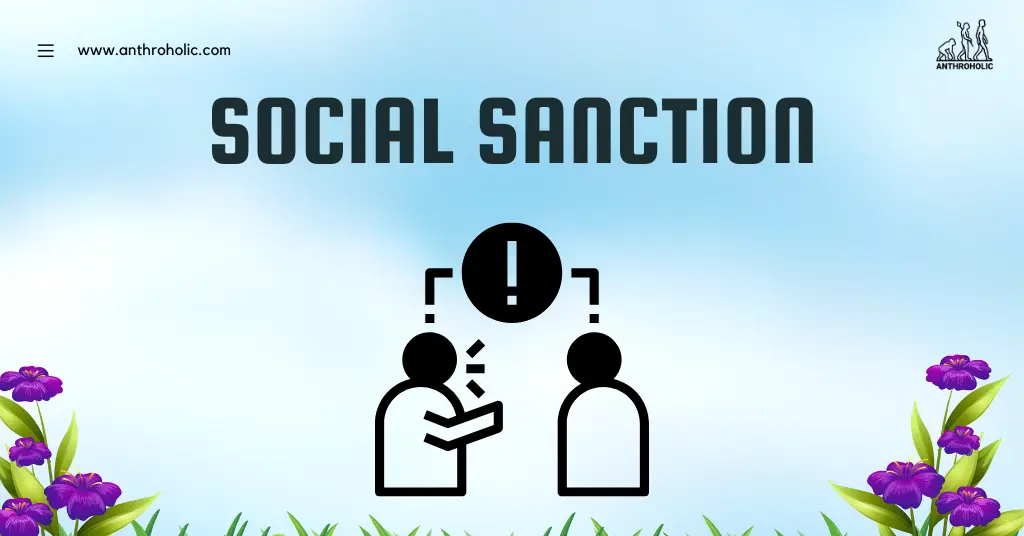AI Answer Evaluation Platform Live Now. Try Free Answer Evaluation Now
Social Sanction
Social Sanctions play an integral role in maintaining societal norms and values by influencing individual behavior. They can be classified into positive and negative sanctions, each of which has formal and informal variations [1].

Positive and Negative Sanctions
Positive Sanctions
Positive sanctions are rewards given to individuals who conform to societal norms. They act as a reinforcement for desired behavior, encouraging adherence to established social rules [2].
Examples include praise, promotions, honors, and other forms of social recognition.
Negative Sanctions
Conversely, negative sanctions serve as punishments for those who deviate from societal norms. These sanctions aim to discourage undesirable behavior and foster societal cohesion [2].
Examples include fines, imprisonment, social ostracization, and criticism.
Formal and Informal Sanctions
Formal Sanctions
Formal sanctions are enforced by official institutions like government, schools, or workplaces. They are typically well-documented and transparent, with clear guidelines for when and how they are applied [3].
Examples include legal penalties, expulsion from school, or termination from employment.
| Positive | Negative | |
|---|---|---|
| Formal | Promotion at workplace | Imprisonment for crime |
Informal Sanctions
Informal sanctions, on the other hand, are enforced by individuals or groups within a society. They are often spontaneous and lack the formalized procedures associated with official sanctions [3].
Examples include social acceptance or ostracism, personal compliments or insults.
| Positive | Negative | |
|---|---|---|
| Informal | Social acceptance | Social ostracism |
The Importance of Social Sanctions
Social sanctions play a critical role in society. They encourage individuals to abide by societal norms and deter those who might otherwise deviate [4].
Upholding Social Order
Sanctions help maintain social order by setting standards for acceptable behavior. Individuals are deterred from breaking these norms due to fear of negative sanctions, while positive sanctions incentivize compliance.
Facilitating Social Control
Sanctions enable social control by giving societal institutions the authority to reward or punish behavior. This helps to regulate individual actions and maintain societal equilibrium.
Conclusion
In essence, social sanctions are the society’s mechanisms to control and regulate behaviors that may affect the harmony and function of the community. As societal norms and values evolve, so too do the types of sanctions applied. Understanding this complex interplay is fundamental to the study of social structures and human behavior.
Sources
[1] Hechter, M., & Opp, K. D. (2001). Social norms. New York: Russell Sage Foundation.
[2] Giddens, A., & Sutton, P. W. (2017). Essential concepts in sociology. Polity.
[3] Thibaut, J., & Walker, L. (1975). Procedural justice: A psychological analysis. L. Erlbaum Associates.
[4] Durkheim, E. (1982). The rules of the sociological method. Free Press.




